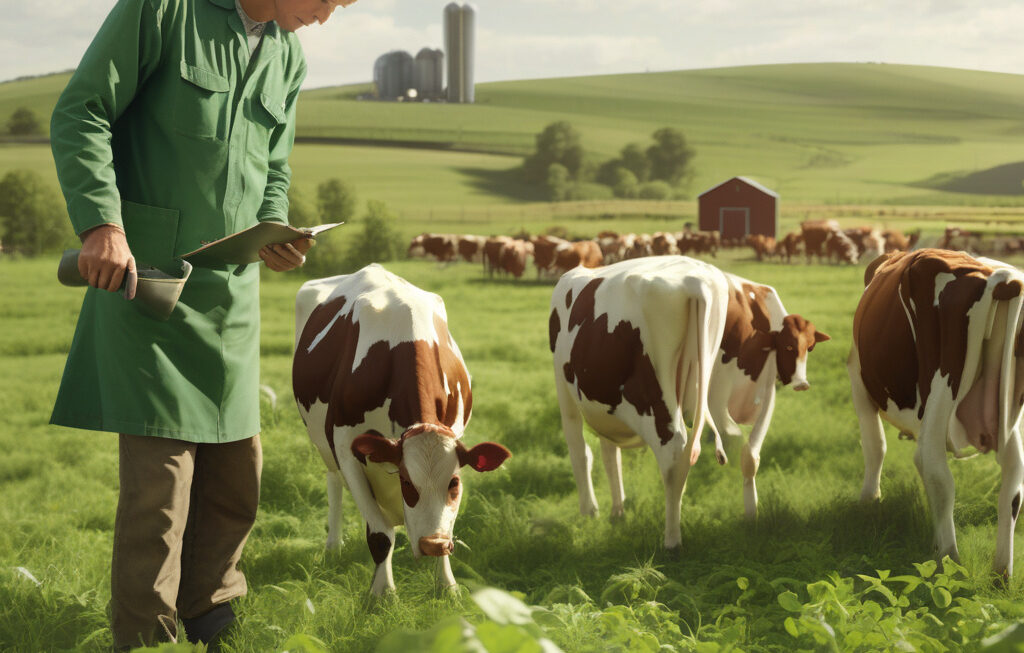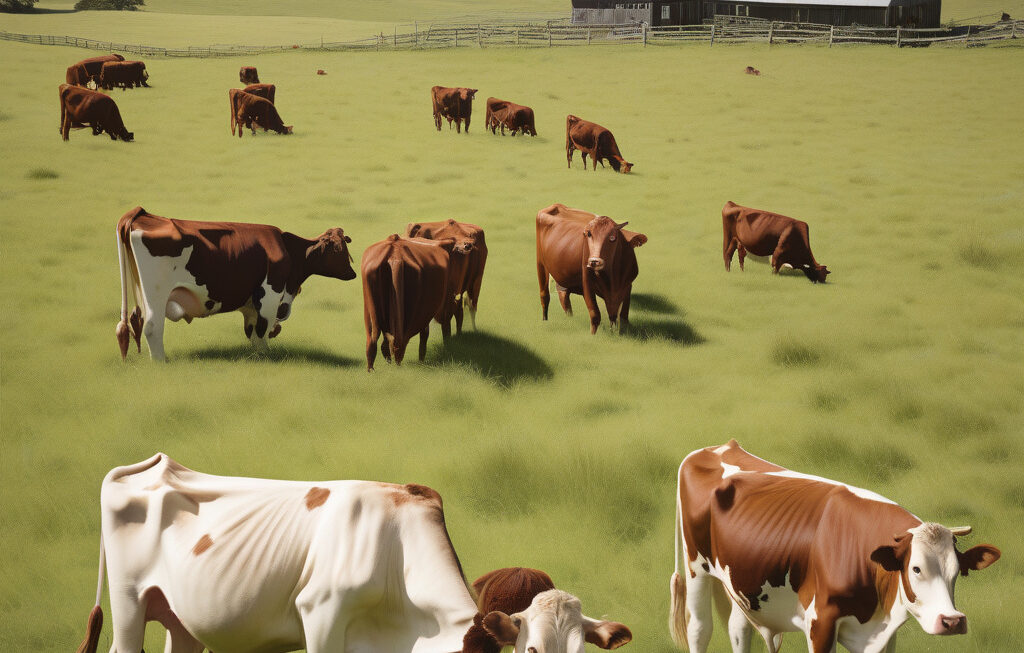Revolutionizing Cattle Farming: Defra Introduces Mandatory Electronic ID System by 2027
In a groundbreaking move set to transform the landscape of cattle farming, England is gearing up to implement mandatory electronic ID tags for all newborn calves by the year 2027. This initiative, spearheaded by the Department for Environment, Food & Rural Affairs (Defra), marks a significant step towards modernizing cattle traceability and enhancing overall agricultural practices in the country.
The introduction of electronic ID tags for calves is poised to revolutionize the way in which cattle are identified and monitored throughout their lifecycle. By leveraging cutting-edge technology, each calf will be assigned a unique electronic tag that will streamline data collection and management, enabling more efficient tracking of individual animals within the livestock system. This enhanced traceability not only bolsters biosecurity measures but also facilitates rapid response in the event of disease outbreaks or other emergencies.
One of the key benefits of this electronic ID system is its ability to provide real-time data on the movement and health status of cattle. Farmers and regulatory authorities will have access to comprehensive information on each animal, including its birthdate, parentage, medical history, and movements between different locations. Such precise tracking not only ensures compliance with regulatory standards but also enhances productivity and sustainability across the cattle farming industry.
Moreover, the implementation of electronic ID tags aligns with broader efforts to promote animal welfare and ethical practices within agriculture. By enabling more accurate monitoring of individual animals, farmers can proactively address health issues, implement targeted interventions, and ensure optimal living conditions for their livestock. This proactive approach not only enhances the well-being of cattle but also reflects a commitment to sustainable and responsible farming practices.
Furthermore, the adoption of electronic ID technology underscores England’s commitment to staying at the forefront of agricultural innovation. By embracing digital solutions to enhance traceability and data management, the country is setting a precedent for leveraging technology to address key challenges in the agricultural sector. This forward-thinking approach not only drives efficiency and transparency within the industry but also positions England as a leader in leveraging technology for sustainable farming practices.
As Defra unveils this ambitious electronic ID system, the implications for the cattle farming sector are profound. From improved traceability and biosecurity to enhanced animal welfare and productivity, the adoption of electronic tags heralds a new era of innovation and efficiency in the agricultural landscape. By embracing cutting-edge technology to modernize cattle traceability, England is paving the way for a more sustainable, transparent, and resilient livestock industry.
In conclusion, the introduction of mandatory electronic ID tags for newborn calves by 2027 represents a significant milestone in the evolution of cattle farming practices in England. By harnessing the power of technology to enhance traceability, data management, and animal welfare, this initiative sets a new standard for innovation and sustainability in the agricultural sector. As Defra leads the charge towards a more modernized and efficient livestock industry, the future of cattle farming in England looks brighter than ever.
#CattleFarming, #ElectronicIDSystem, #AgriculturalInnovation, #AnimalWelfare, #SustainableFarming












